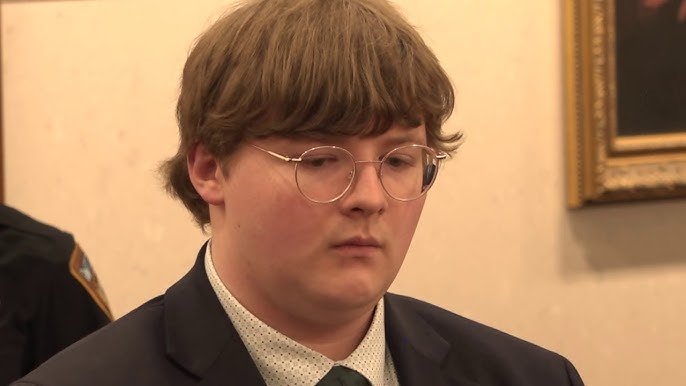Benjamin Elliott grew up in a suburban home in Katy, Texas, as one of three siblings in what seemed to be a stable, close-knit family. He and his twin sister, Meghan Elliott, shared not only a birthday but a home and daily life as high school students nearing adulthood. According to friends and family, the twins were close, and there was no known history of violence between them.
On the night of September 29, 2021, that sense of normalcy collapsed. Benjamin, then 17, called 911 just before 5:00 a.m., telling the dispatcher he had stabbed his sister and that he thought he had been dreaming. He was discovered by deputies performing CPR on Meghan, who had sustained multiple stab wounds. She was pronounced dead at the scene.
Elliott later explained to officers that he woke up in his sister’s bedroom with a knife in her neck, removed the weapon, tried to stop the bleeding, and then called emergency services. He cooperated with police from the beginning, repeatedly stating he did not remember the act and that it felt like a dream.
The Sleepwalking Defense
From the outset, Elliott’s legal team centered their strategy on an unusual and controversial claim: that Benjamin was sleepwalking at the time of the killing and was not conscious of his actions. Defense attorneys called medical experts, including neurologist Dr. Jerald Simmons, who testified that parasomnia—a category of sleep disorders that includes sleepwalking—could explain Elliott’s behavior. They argued that this was an involuntary act committed during a dissociative state.
The defense also pointed to a family history of sleep disorders. Benjamin’s older sister testified that he had sleepwalked in the past, and a relative confirmed the family had experienced similar sleep issues. However, the prosecution pushed back, emphasizing physical evidence and timeline inconsistencies.
Prosecutors argued that Elliott had used his phone shortly before the attack, including turning off his alarm, suggesting he was awake. Surveillance from the home’s activity monitoring systems tracked his steps moving from room to room. They also pointed out that the knife used was newly obtained the night before and suggested Meghan’s screams were muffled by a pillow, further indicating planning or intent.
The Trial and Conviction
Elliott stood trial in early 2025, now 21 years old. The case quickly gained national attention due to its emotional weight and the unusual nature of the defense. Jurors were presented with expert testimony, family statements, 911 audio, and footage of Elliott’s police interviews.
In one of those interviews, played in court, Elliott described his disbelief and panic after realizing what he had done. “I freaked out,” he told detectives. “I put the knife down and put a pillow on her to try and stop the bleeding. Then I called 911.”
Despite the defense’s arguments, the jury ultimately sided with the prosecution. They deliberated for roughly five hours before finding Elliott guilty of murder. During the sentencing, the judge noted the jury’s request for leniency. Benjamin had no prior criminal history, had followed all conditions while out on bond, and showed no disciplinary issues since his arrest. On February 25, 2025, he was sentenced to 15 years in prison—well below the 40 years sought by the prosecution.
Life in Prison
Today, Benjamin Elliott is serving his sentence in a Texas Department of Criminal Justice facility. He will be eligible for parole after serving half of his term, which means he could be released in approximately 2032, when he is around 28 years old.
Though the prison system does not typically release real-time updates about an inmate’s daily life, Elliott is reportedly classified under general population. There have been no public reports of behavioral issues or disciplinary infractions since his incarceration began.
His case remains a topic of legal and psychological debate, particularly regarding the use of sleepwalking as a defense in violent crime. It has drawn comparisons to similar cases, including the 2019 Harris County case involving Raymond Lazarine, who also unsuccessfully claimed sleepwalking after killing his spouse.
A Legacy of Loss
The Elliott family has never spoken publicly in extended detail since the sentencing, but interviews during the trial revealed their devastation. Both parents testified during proceedings, expressing grief for Meghan and uncertainty over how to reconcile what Benjamin had done with who he had been before.
Meghan Elliott is remembered by friends and teachers as a bright, kind, and creative young woman with a promising future. Her death—and the circumstances surrounding it—left lasting scars in her community and raised questions few families ever face.
As for Benjamin, his path forward is limited by the consequences of a single night. Whether his actions were driven by a sleep disorder, mental health issues, or something else entirely, he will carry the weight of his sister’s death for the rest of his life. The case is now part of the broader discussion about how science, emotion, and justice intersect in America’s courtrooms.

